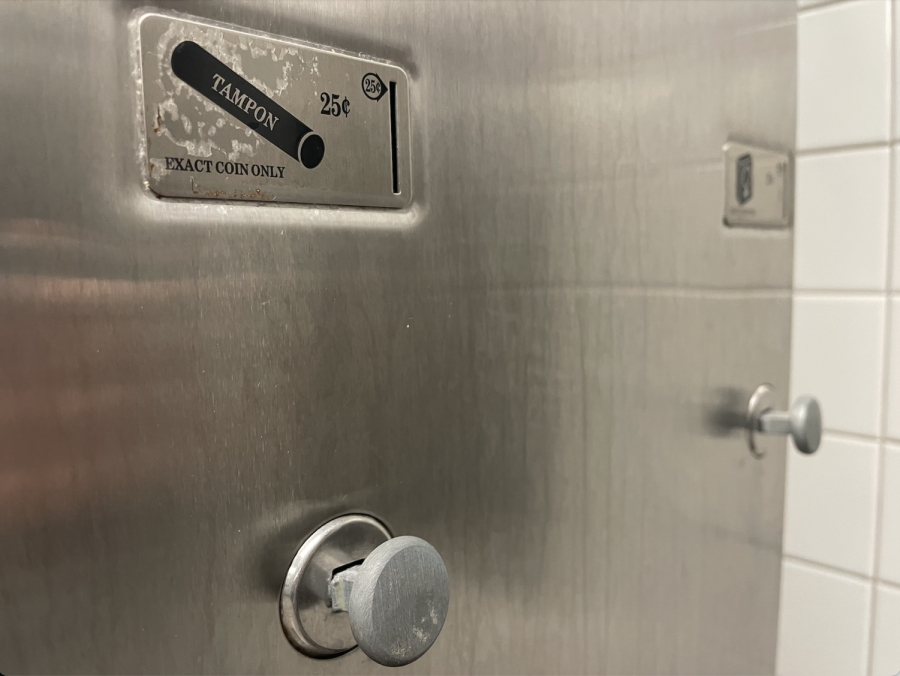Michigan repeals tampon tax, Ann Arbor first city to require menstruation products in public restrooms
Some Pioneer students see Michigan’s repeal of the so-called “tampon tax” as a sign that activists like them can get things done on the reproductive rights front if they keep working.
On November 5, 2021, Michigan Gov. Gretchen Whitmer completed the signing of HB 5267, a two-bill bipartisan package that officially repealed the tampon tax.
Pioneer senior Hillary Poudeu-Tchokothe said it was long overdue. “This was a sales tax on menstrual products, as if they are luxury items and not essential products for people who menstruate,” Poudeu-Tchokothe said.
Before the bill was signed, Michigan residents had to pay a 6% tax on all menstrual products. While the bill won’t officially go into effect until 90 days after the signing, which makes out to be early February 2022, it will, according to Whitmer, end up saving families from paying nearly $5,000 in taxes over the course of their lifetime.
“When I read the news, I was ecstatic,” said Poudeu-Tchokothe.
Pioneer senior Lucia Manning felt the same way. “I remember seeing posts about it on Instagram and I think I sort of did a double take and was like, ‘Is this real?’ and sure enough, it was.”
Just weeks after the state-wide repeal of the tampon tax, Ann Arbor took the extra step of passing an ordinance requiring all public restrooms to carry menstrual products, which will come into play in January. Ann Arbor is the first major city in the United States to make this a requirement and the ordinance applies to all public restrooms, regardless of what gender they are designated as.
“I appreciate that menstrual products are being put in all bathrooms,” said Pioneer senior Lin Yang. “Not only is this trans inclusive, which is always cool to see, but it will also hopefully destigmatize and demystify menstruation.”
“I think this is big in terms of reproductive justice as well as menstrual equity,” said Poudeu-Tchokothe. “I hope many states do the same, because menstrual products are not a luxury but a necessity.”
Yang agreed. “Both the statewide and Ann Arbor [initiatives] are strong steps for not only reproductive health but also economic equity in healthcare, especially with the increasing living cost of places like Ann Arbor and the rise in homeless population as a result of that.”
Despite moving in a positive direction on multiple fronts, Manning believes the state needs to shift its focus a bit for the time being. “I am very excited about Michigan repealing the tampon tax and I definitely think it’s a step in the right direction, but… I am wondering if a lot of our legislators let it pass as a sort of distraction from the bigger problems we have coming up, like the new Supreme Court case that could overturn Roe v. Wade.”
If the Supreme Court was to overrule the case that Manning is referring to, Roe v. Wade and/or Casey v. Planned Parenthood would be overturned and abortions would become illegal in the state of Michigan.
“I think it’s silly that Michigan is repealing their tampon tax while also not removing the old abortion ban law from like the 1930s or putting in some RHA [Reproductive Health Act]. If we don’t get rid of this old law, abortion could very quickly be outlawed in Michigan,” said Manning.
While the overturning of Roe v. Wade is a very real possibility, the court decision isn’t expected to be settled until mid-2022.
In the meantime, “…we just have to work on making both policies [repealing the tampon tax and requiring menstrual products in public restrooms] a nationwide thing,” said Yang.
“I think repealing the tampon tax was something we very much needed, but I also see it as a sign that we can make change, since we had been fighting to repeal it and it finally worked, and to keep going because there is so much more we can do,” said Manning.


